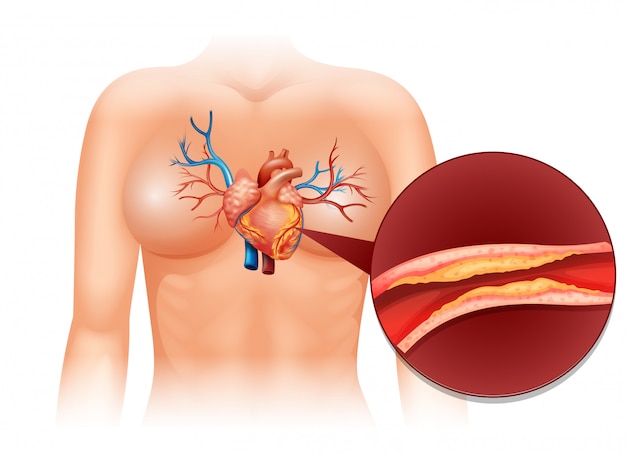Preventive Healthcare
Statins: Production, Benefits and Cholesterol Management
1413 Views
0

High cholesterol is a problem. It is plaguing a fair chunk of the world's population. If so, you may have considered taking statins as a way to lower your levels. Statins are a class of drugs. They can be highly effective in managing cholesterol, but like any medication, they come with both benefits and risks.
In this blog post, we'll explore how statins work, their potential benefits and drawbacks, who should take them (and who shouldn't), and more. So if you're curious about statins' role in cholesterol management, read on!
How do statins work?
- Statins are a type of medication used to lower cholesterol levels in the blood. They work by blocking an enzyme called HMG-CoA reductase. It is responsible for producing cholesterol in the liver. By inhibiting this enzyme, statins reduce the amount of cholesterol that is manufactured and released into the bloodstream.
- When you take a statin medication, it travels through your digestive system and enters your bloodstream where it eventually reaches the liver. Once there, it binds with HMG-CoA reductase enzymes preventing them from making more cholesterol. With less cholesterol being produced by your liver, your body will start using up any excess amounts stored in fatty deposits around your arteries.
- As these deposits begin to decrease over time due to lower overall cholesterol levels caused by taking statins, blood flow can improve throughout the body which may help prevent heart attacks or strokes. Additionally, some studies have suggested that statins may help reduce inflammation within arterial walls leading to healthier cardiovascular function overall.
While there are certainly potential risks associated with taking statin medications as discussed later on in this article – their ability to lower high LDL levels has been well-established which makes them one of the most commonly prescribed treatments for managing high blood pressure and reducing risk factors for heart disease in many patients today.
The benefits of taking statins
- One major benefit of taking statins is their ability to reduce the risk of heart attack and stroke. Studies have shown that patients who take statins regularly are less likely to experience cardiovascular events than those who do not take them.
- Statins have been found to be effective in managing other health conditions such as diabetes, kidney disease, and high blood pressure. They also offer some protection against inflammation, which plays a role in many chronic diseases.
- Another important benefit of taking statins is their cost-effectiveness. Compared with other treatments for high cholesterol, such as dietary changes or surgery, statin therapy is relatively inexpensive and widely available.
- It's worth noting that while there are clear benefits to taking statins for many people with high cholesterol or other health conditions, these medications may not be appropriate for everyone. It's essential to discuss your individual risks and needs with your healthcare provider before starting any new medication regimen.
The risks of taking statins
- One of the most common statin side effects reported by those taking statins is muscle pain or weakness. This can range from mild discomfort to more severe muscle damage known as rhabdomyolysis.
- Another potential risk associated with taking statins is liver damage. While this is a rare occurrence, regular monitoring of liver function tests may be necessary for individuals at higher risk for developing liver problems.
- Statins have also been linked to an increased risk of diabetes, although the exact cause for this association remains unclear. Some research suggests that statins may interfere with insulin production and utilization in the body.
- There are also concerns about the long-term effects of taking statins on cognitive function and memory loss. While some studies suggest a possible link between these conditions and prolonged use of statin medications, further research is needed to confirm any causal relationship.
Who should take statins?
- Statins are commonly prescribed to people with high levels of cholesterol, but not everyone needs them. The decision to take statins should be made after careful consideration and consultation with a healthcare professional.
- People who have already experienced a heart attack or stroke may benefit from taking statins to reduce the risk of future cardiovascular events. Additionally, individuals with diabetes or chronic kidney disease may also be recommended for statin therapy.
- Those who have a family history of heart disease or have other contributing factors such as high blood pressure, smoking habits, obesity, or a sedentary lifestyle may also need to consider taking statins as part of their cholesterol management plan.
- It's essential to note that there is no one-size-fits-all approach when it comes to determining who should take statins. Healthcare professionals will evaluate each individual case based on several factors before making any recommendations.
Who should not take statins?
- It is important to note that not everyone can benefit from taking statins for cholesterol management. Individuals who have experienced allergic reactions or other negative statin side effects in the past should avoid them altogether.
- People with liver disease should also avoid taking statins as they can further damage the liver and lead to serious health complications. Those who are pregnant or breastfeeding should steer clear of statin use as well.
- Additionally, certain medications may interact negatively with statins and increase the risk of unwanted statin side effects. If you are currently taking any prescription medication, it is essential to speak with your doctor before starting a new regimen including statin use.
- Individuals who do not have high cholesterol levels but still experience a minor elevation in their readings may not need to take statins at all. In these cases, lifestyle changes such as exercise and a healthy diet may be sufficient for managing cholesterol levels without resorting to medication.
Conclusion
Statins are a valuable tool in the management of high cholesterol levels. They have been proven to reduce the risk of heart disease and stroke in people with high cholesterol. However, like any medication, they come with potential risks and side effects. Individuals need to discuss their options with their healthcare provider to determine if taking statins is right for them.
People who are at higher risk for developing heart disease or stroke may benefit from taking statins while others may not need them. Diagnosing cholesterol early helps in maintaining healthy levels, thus helping avoid complications associated with strokes and heart attacks.
You can book a total cholesterol test at a Metropolis Healthcare Lab near you. You can also book a home test on our website with a few simple clicks. Contact us today to learn more about everything we can do for you.























 WhatsApp
WhatsApp